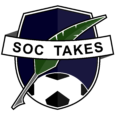NuRock significant financial beneficiaries of USL revenues

One of the enduring questions about lower-division soccer remains: Where do USL franchise fees — currently at $10 million for the Championship and $1 million for League One — go? The seeming answer is a reinvestment into USL headquarters; namely front office salaries, benefits, office rent, etc. However, based on financial statements obtained by Soc Takes, a significant portion of USL revenues and profits end up in the hands of USL owners NuRock Soccer Holdings LLC.
NuRock Soccer Holdings
A subsidiary of NuRock Companies, a real estate organization, NuRock Soccer Holdings is the ownership group behind USL LLC. The USL was formerly the USISL in 1996. This LLC was taken over by Umbro in 1997, which ran it until 2008 when Umbro was acquired by Nike. In 2009, NuRock purchased what became the USL from Nike.
The ownership group has changed slightly over the years, but it has always comprised Robert Hoskins and USL CEO Alec Papadakis. The Papadakis family trust remains undefined, though it includes, at the very least, Alec and managers Joan and John Papadakis. Alec’s brother, Nick, and son, Justin, are also involved in USL operations, though it is unclear whether they are a part of the Papadakis family trust. Beyond Hoskins and Papadakis’ undefined percentage stake in NuRock, they also have individual stakes in the league.
Breakdown
NuRock has drawn approximately $10.7 million in revenue from the USL over the previous two years alone. That is 27.9% of the revenue generated by the USL during that time.
1. In 2017, the USL generated $14.5 million in revenue, of which $13.5 million (93.1%) came from franchise and participation fees and approximately $1 million (6.9%) from other income such as hotel rebates, sponsorship, merchandise sales, etc.
In 2018, the USL generated $23.8 million in revenue, of which $22.3 million (93.7%) came from franchise and participation fees and $1.5 million (6.3%) from other revenue sources.
While it is no longer reported as an exact amount, the USL reported that it earned $167,025 in sponsorships in 2016.
2. Under NuRock’s agreement with USL LLC, NuRock ownership receives 3.5% of annual revenues. Via this agreement, NuRock was paid $514,000 in 2017 and $828,428 in 2018.
3. NuRock borrowed $2 million in 2009 to purchase the USL from Nike. That loan (and interest) was paid off by USL revenues in 2016-17. In other words, NuRock paid off the loan used to acquire the league using league revenues.
4. In 2017, the USL executed a promissory note of $5.8 million to NuRock. While the total amount is due in 2047, the note accrues annual payable interest of 15% of the principal; a rate that is higher than the best certificates of deposit (CDs) currently on the market, which offer a rate of ~2%. Under this agreement, NuRock earned $792,462 in 2017 and $864,180 in 2018. The current balance of the promissory note principal is $5.76 million.
5. In 2018, NuRock was paid $5.68 million as member distributions. This distribution correlated with a change in equity within the organization. Since 2018, NuRock’s ownership stake in the league stands at 50.5% for NuRock, 49% for Papadakis Family LLC and 0.5% for Robert Hoskins. This meant that Alec Papadakis had a greater stake in the USL than before (an unspecified stake in NuRock, combined with the increased Papadakis family stake).
Along with its $10.7 million in revenue, NuRock is poised to continue generating revenue via their high-interest promissory note and annual 3.5% revenue return. Additionally, the organization can collect larger payouts as they did in 2017.
Other non-NuRock-related USL expenditures included payroll ($3.7 million in 2017, $3.8 million in 2018), legal fees ($1 million in 2017, $800,000 in 2018), broadcast and TV production ($400,000 in 2017, $1.2 million in 2018), and operating expenses ($1.8 million in 2017, $3.6 million in 2018).
It is important to note that none of this is illegal. Owners (in this case, NuRock) of franchisors (USL LLC) are allowed to collect from revenues generated by the franchisor. NuRock could, at any point, extract money from USL LLC.
Meanwhile, USL teams are struggling to generate revenue, and in some cases, may resort to questionable solutions to counter their low revenue problem. On the other hand, investors continue to consider the USL to be a viable non-MLS option, evidenced by increasing expansion (and expansion fees).
As mentioned earlier, most of the USL’s revenue is contingent on the league’s franchise and participation fees. Currently, a significant portion of that revenue is being directed toward NuRock.
The USL declined to comment on this story.
WRALSportsFan.com’s Neil Morris and Soc Takes managing editor Kevin Johnston contributed to this story.
Follow Nipun on Twitter: @NipunChopra7.
Support Soc Takes on Patreon for access to exclusive content and supporter benefits. Click here to become a patron today.



